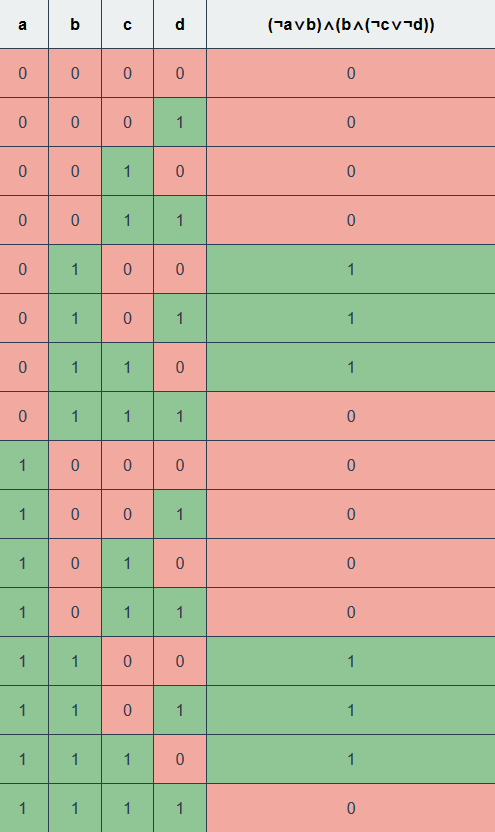The boolean expression:
y= (a'+b) * (b(c'+d')) = (a'+b) * (bc' + bd')
is given.
Find out the disjunctive normal form to this boolean expression.
My suggestion:
y= a'bc'd' + a'bc'd + a'bcd' + abc'd' + abc'd+abcd'
only when these terms are true the function is 1 and otherwise not. (=0)
Is the DNF right?
Thanks for the help.
Edit: Here ist the truth table for the boolean expression:

